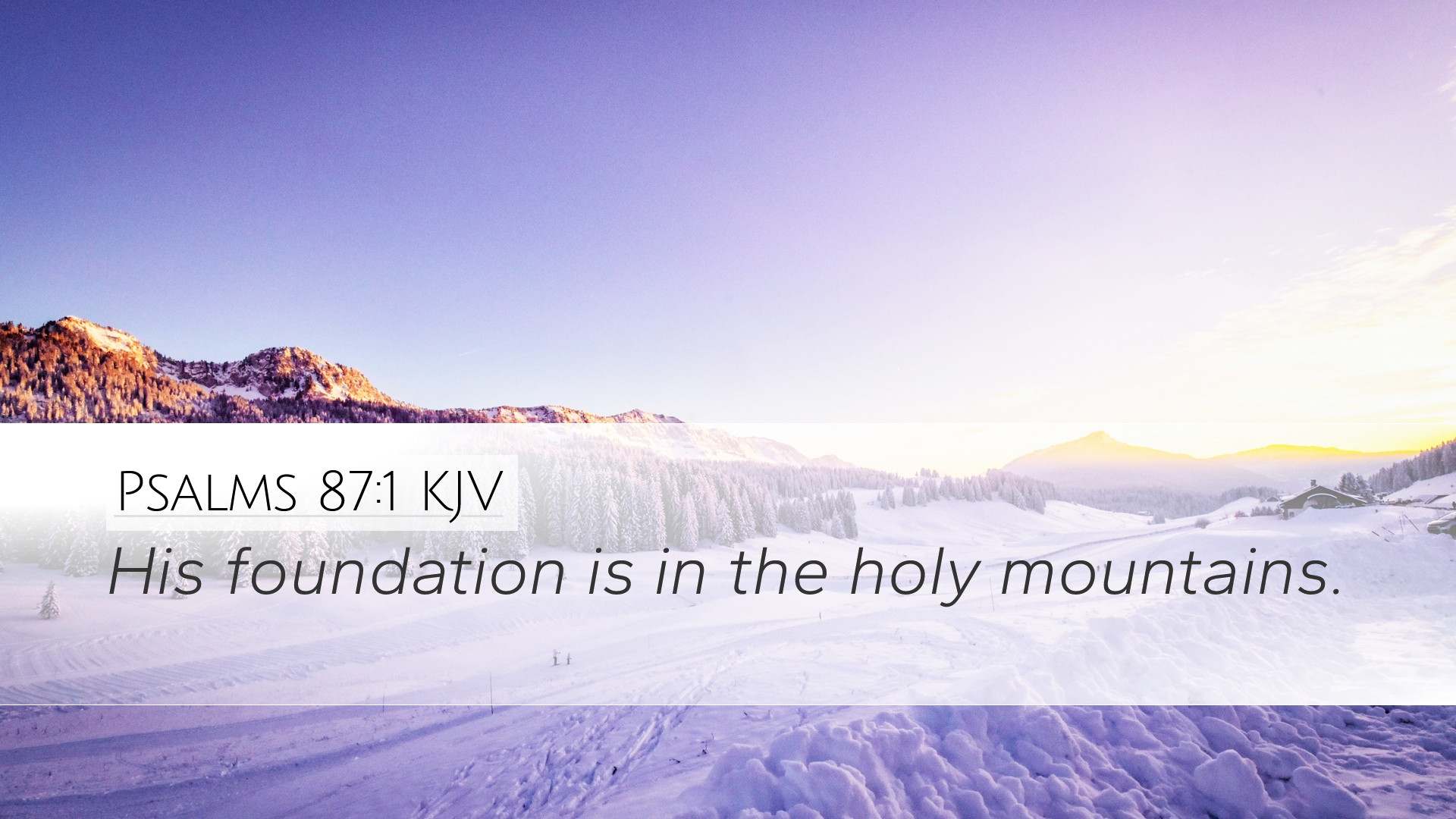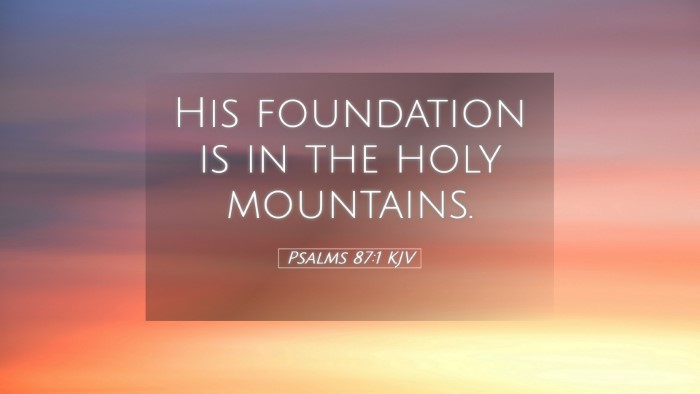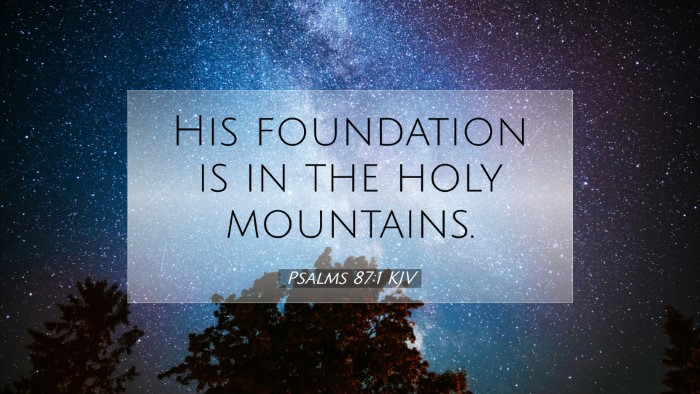Psalms 87:1 - A Commentary
Bible Verse: "His foundation is in the holy mountains."
Introduction
Psalms 87 is recognized as a psalm of the sons of Korah, celebrating Zion as a city of God and reflecting on its theological significance. The first verse lays a foundational ecclesiological theme, emphasizing God's establishment and sovereignty over Zion. This commentary synthesizes insights from several public domain sources, including the writings of Matthew Henry, Albert Barnes, and Adam Clarke.
Exegesis of Psalms 87:1
Matthew Henry's Insight: Matthew Henry interprets this verse as an affirmation of God's choice of Zion. He notes that God's foundation for the city lies in the “holy mountains,” which signifies both a physical and spiritual elevation. The "mountains" symbolize stability, strength, and divine presence, suggesting that the foundation of God's people is not just geographical but rooted in spiritual realities.
Albert Barnes' Commentary: Barnes elaborates on the notion of "foundations" in biblical literature, highlighting that the use of the plural "mountains" implies a significant connection to the hills surrounding Jerusalem, each contributing to the city’s prominence. For Barnes, the choice of Zion as God's dwelling aligns with God's plan in redemptive history, illustrating a place of refuge and salvation for His people.
Adam Clarke's Perspective: Adam Clarke focuses on the implications of this divine foundation. He suggests that the “holy mountains” refer to the spiritual location of worship and divine encounter. Clarke emphasizes that the holy essence of Zion makes it unparalleled among other cities, where God has chosen to set His name and presence, indicating a deep theological significance that extends beyond mere earthly cities.
Theological Themes
- Divine Sovereignty:
All three commentators underscore God's sovereign choice of Zion, depicting His absolute authority in determining sacred spaces. This theme encourages believers to acknowledge God's ultimate control over their lives and communities.
- Spiritual Heritage:
The notion of Zion as a foundation alludes to the spiritual heritage of the Israelites. As highlighted by Henry, it acts as a reminder of the covenant relationship God has established with His people, affirming their identity in Him.
- Worship and Presence:
Clarke's focus on holiness reaffirms that worship is intrinsically linked to the character of the location where it occurs. The mountains of Zion become a metaphor for approaching God, thus offering a clearer pathway to understanding how sacred spaces are essential for worship and communion in faith.
Contextual Analysis
Psalms 87 must be considered within its broader literary and historical context. Encompassed in the Psalter, it reflects Israel’s views of their own identity and the significance of Zion in God’s redemptive plan.
Historical Understanding: During the era of the post-exilic community, the returning exiles began to recognize not only a geographical connection to Zion but also a renewed theological understanding of their communal identity as God’s chosen people. This theme resonates with the ancient near-eastern context, where city-states were often seen as representative of divine favor.
Application for Modern Believers
Psalms 87:1 poses profound applications for contemporary believers, especially pastors and theologians.
- Church as the New Zion:
This verse invites pastors and church leaders to recognize the church as a living embodiment of this foundation. Just as Zion was chosen, the church — as Christ’s body — is established on Christ, the cornerstone, symbolizing both stability and holiness in a world often swayed by uncertainty.
- Community and Identity:
For theologians studying community identity, the reference to Zion invites exploration of how believers can find their identity not just in individual faith but as a collective body of Christ. Acknowledging Zion’s uniqueness informs how congregations can live out their faith with purpose and mission.
- Spiritual Foundations:
This commentary serves as a call to personal and communal reflection on what it means to be built upon the foundation of Christ. It challenges individuals and communities to evaluate their spiritual 'mountains' — those areas of steadfast faith, worship, and doctrine that uphold their lives and congregational life in alignment with God’s decrees.
Conclusion
Psalms 87:1 serves as a profound reminder of God's chosen and established foundations among His people. By exploring the insights of Matthew Henry, Albert Barnes, and Adam Clarke, we recognize the enduring significance of Zion within the broader narrative of Scripture. This rich tapestry of historical, theological, and practical reflections equips modern believers to navigate their faith journeys, anchored in the divine assurance of God's presence within His holy establishment.


